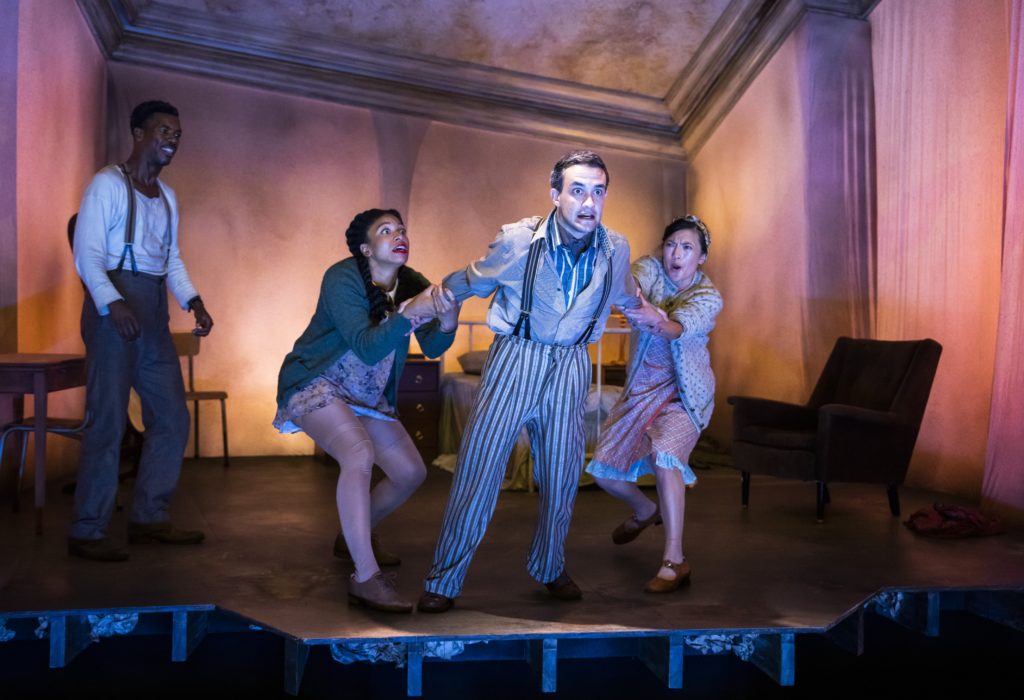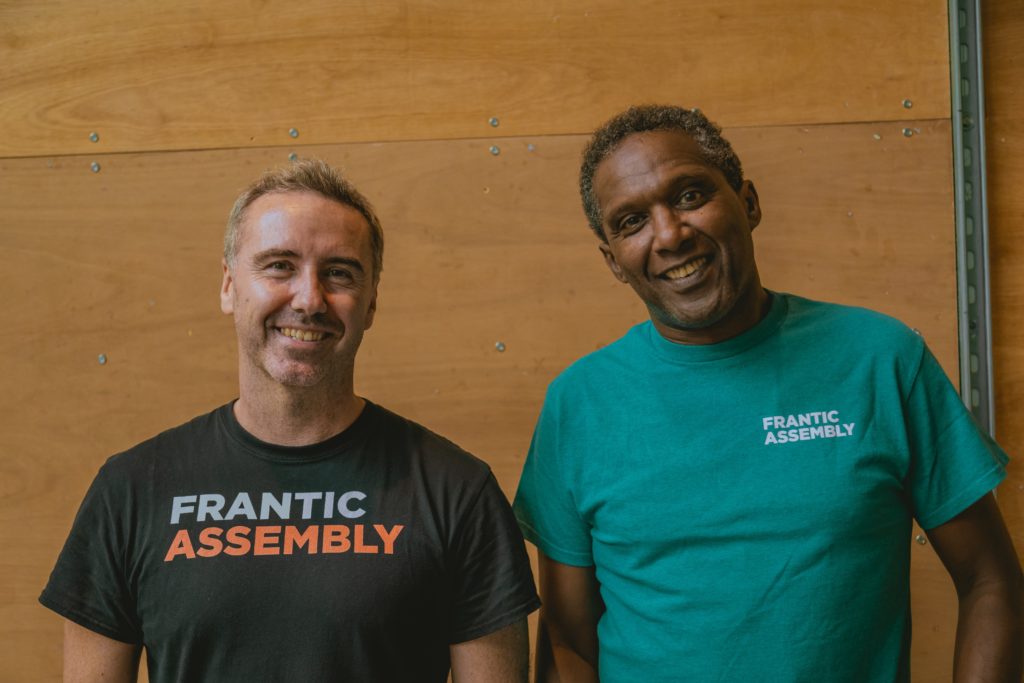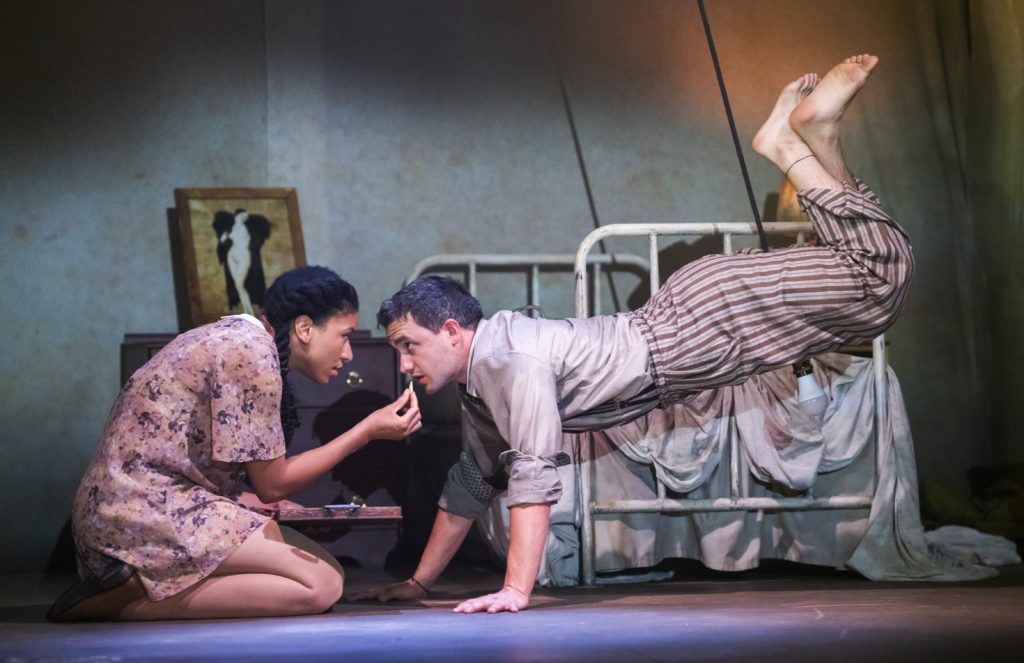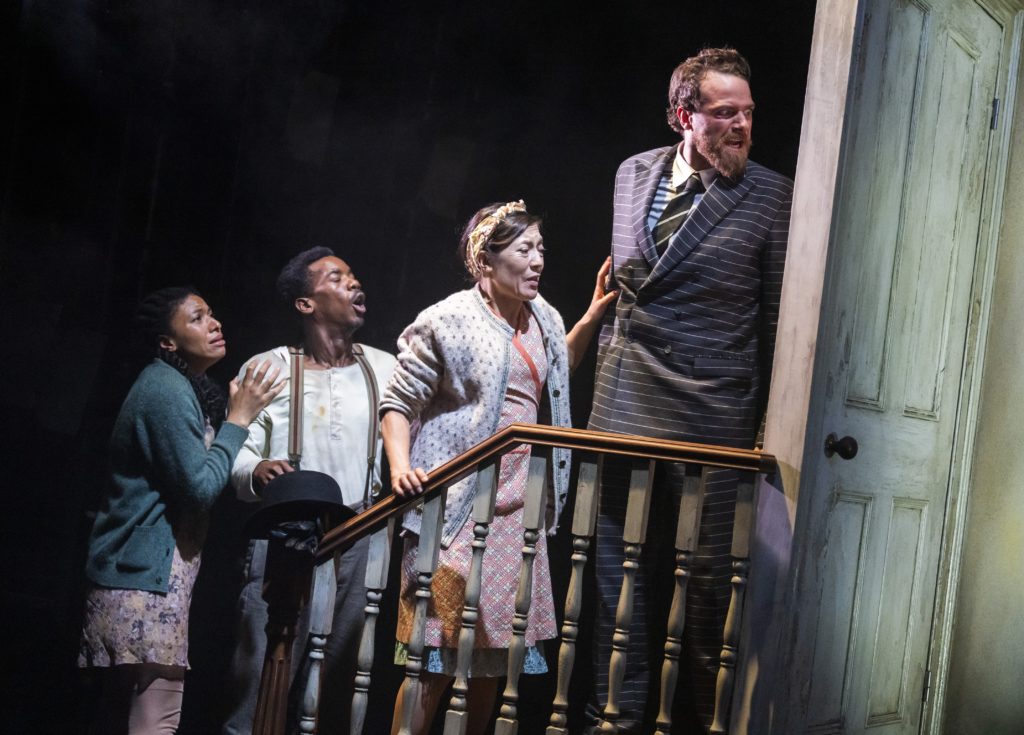
WHEN actor, writer and director Fraser Ayres advised Frantic Assembly artistic director Scott Graham to consider staging a version of Franz Kafka’s novella Metamorphosis, his initial response was No.
“Why would I want to go anywhere near it? It comes with so much baggage and so much expectation,” he said. “Most people only know the opening to the story when you mention the title.”
That was in 2019, but roll on to 2023 to find Frantic Assembly touring London Olympic Games poet Lemn Sissay’s adaptation from September 11 to March 2 2024. Next stop York Theatre Royal, from October 10 to 14, following up on last October’s visit with an electrifying take on Shakespeare’s Othello.
Kafka’s 1915 novella tells the horror story of Gregor Samsa, a weary travelling salesman and sole breadwinner in his debt-ridden family, who wakes up one morning to find he has been turned into a giant beetle. Confined to his room, Gregor becomes reliant on the family that once relied on him.
Its influence has spread through popular culture from video games to the Rolling Stones’ cover for their 1975, Metamorphosis, where the band members’ facial features were replaced by bug heads.
The existential, absurdist story has inspired films, operas and theatre productions too, not least Steven Berkoff’s famed 1969 physical theatre show. “If you make theatre and attempt this story, there is a worry that you are always going to be in the shadow of Berkoff,” says Graham.

Nevertheless, the possibility of Frantic Assembly staging Metamorphosis became an itch for Graham that had to be scratched, mulling over Ayres’s reading of Kafka’s tale as a powerful story not so much about transformation as the power of perception.
Cue his change of mind. “It’s a story written with such restraint, and it contains so much fear and cruelty. I couldn’t get it out of my head. It was written over 100 years ago, but it feels so timely. So now,” says Graham.
“Rather than an absurd event where someone turns into a giant beetle, we look at it as a story of gradual change, to becoming less human, and that brings it up to date as a critique of the burden of debt and how everything is designed to never be able to get out of it,” he says.
Graham had found the key that would allow him to unlock the story and open it up to exposure afresh, duly teaming up with BAFTA-nominated poet, broadcaster and speaker Lemn Sissay for the first time.
“Initially I was looking for a playwright to adapt the novella, but then I had a moment of inspiration, suggesting Lemn should do it. He’s a renowned poet, not known for adaptations, though he did adapt Benjamin Zephaniah’s teenage novel Refugee Boy [in 2013],” he says.
“I thought we could do something more than a flat theatre interpretation that could really reinvent it, and Lemn’s very personal response to the novella, and its story of a family in debt, does that.”
Graham continues: “I don’t think of it necessarily as a blooming of Lemn as a playwright because we never talked about it as a play. The freedom was there to bring ideas to each other and then create this work for the stage. That means he was not encumbered by expectations of being a playwright.
“It’s poetic – he’s brought that out – and what’s brilliant about this production is that it is a play but it’s something more immediate than that. There was always a risk if I said, ‘can you adapt if for the stage?’, it would mean he would just go off and write a play.
“Lemn’s immediate reaction was ‘No’, but it was about creating the right environment for him, so it was never just about a writer writing a play, but what could I bring to it too with movement. It was never just about the writing, so Lemn could feel like he was held in a safe place where he could explore being a playwright without being crushed by expectation.”
Lemn’s script reimagines Kafka’s story as a psychological tale of a family under pressure, crushed by external economic forces to the point of crushing each other.
“Gregor is the breadwinner and the family are like parasites upon him,” says Graham. “But when he transforms, he is less valuable to them and becomes a burden and we see what happens.”
Sissay describes it as “a story about a family with a big secret locked in one of its rooms”. “The change that happens to Gregor exposes the flaws and fissures and insecurities that already exist in the family,” he says. “There are so many different tensions already in play long before Gregor wakes up as a bug.”
Comparing his Frantic Assembly collaboration to a piece of “intricate origami”, Sissay argues that everything in his script can be found in Kafka’s story. “It’s all there, I haven’t invented. I wouldn’t dream of trying to rewrite such a brilliant text,” he says.

Academics have long argued over whether Gregor’s metamorphosis is actual or metaphorical, but Graham suggests it can be both, particularly in the liminal space of the stage where the audience has a different relationship to the material than as a solo reader.
If you look very closely at the story, the clues are all there, and what happens to Gregor might be seen as a mental health crisis, says Graham. Long before Sissay began writing the script, Frantic Assembly, practitioners of physically dynamic and emotionally truthful shows, were exploring elements of the text already, particularly the fear and sense of the other or monstering that lies within it.
“I don’t think what happens to Gregor is a supernatural event. I think it’s a result of stress. The Samsa family are drowning in debt, a debt that has resulted because of the father’s bankruptcy. Like Gregor, the father has had a moment of transformation when he has gone from breadwinner to burden,” says Graham.
“Gregor is desperate to get the family out of debt and the confined life they lead. He is aspiring to something else, particularly for his sister Grete, who plays the violin and who he hopes can take it further.
“One of the elements of the story is about aspiration, and what people from different backgrounds can aspire to, and that feels really timely because of the articulation of the idea that people from backgrounds like Grete’s can’t play the violin or shouldn’t aspire to a career in the arts.”
Kafka’s Metamorphosis comes with an unforgettable opening sentence: “As Gregor Samsa awoke one morning from uneasy dreams he found himself transformed in his bed into a gigantic insect.”

“It is complete genius,” says Graham, but he wonders whether it might be a red herring that immediately makes everyone think the novella’s title refers to Gregor alone.
Sissay agrees: “I think the metamorphosis that takes place is as much about Grete as it is about Gregor. She is the person in the story who experiences great change of many different kinds. She is in the process of becoming a woman. It’s all there in the text, and once you see it, you can’t unsee it. It is so clear.”
The pubescent Grete is the family member closest to Gregor, and while her parents recoil when he becomes a bug, she takes on the task of entering his room and bringing him food. “Feeding somebody is an extraordinary act of intimacy,” says Graham, who points to the tensions and ambiguities and confusions already present in Gregor and Grete’s relationship, as indeed there are within the whole family.
Ultimately those tensions will detonate in unexpected ways and with far-reaching consequences. “This is a story of a family under stress from without and within,” says Graham. “It looks like a normal family and operates like a normal family, but there are hidden weaknesses. When the cracks begin to appear, the structure cannot hold. It’s a tragedy.”
Frantic Assembly present Metamorphosis at York Theatre Royal, October 10 to 14, 7.30pm plus 2pm Thursday and 2.30pm Saturday matinees. Box office: 01904 623568 or yorktheatreroyal.co.uk.
LEMN Sissay’s new poetry collection, Let The Light Pour In, was published by Canongate on September 21.
